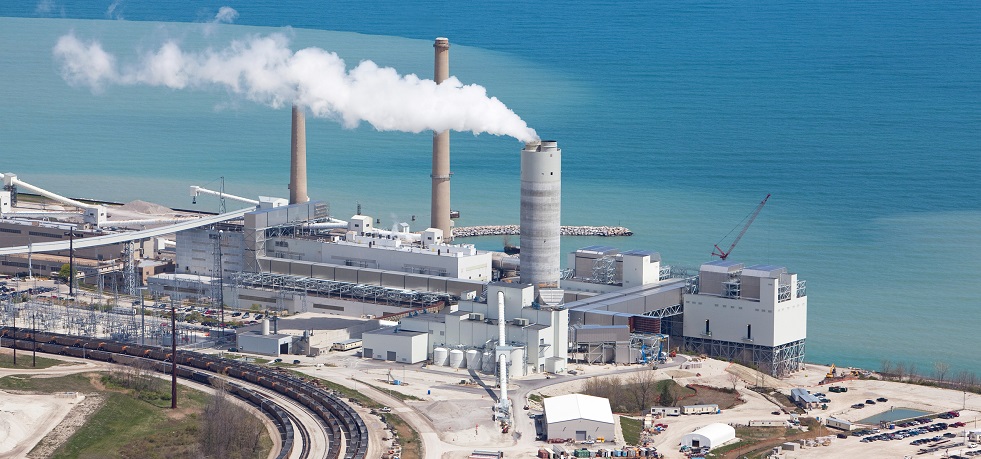We Energies announced today that the company plans to extend the operating lives of the four older units at its Oak Creek site. The expected retirement of Units 5 and 6 will be delayed by a year, until May 2024. Retirement of Units 7 and 8 will be delayed for approximately 18 months, until late in 2025.
These coal-fueled units were built and placed into service in the late 1950s and 1960s. They are equipped with modern environmental controls and have a total capacity of 1,100 megawatts.
“The decision to postpone the retirement dates for these units is based on two critical factors: tight energy supply conditions in the Midwest power market and supply chain issues that will likely delay the commercial operation of renewable energy projects that are currently moving through the regulatory approval process,” said Scott Lauber, president — We Energies.
The company remains committed to achieving aggressive environmental goals, including a 60 percent reduction of CO2 emissions from its power generation fleet by the end of 2025 and an 80 percent reduction by the end of 2030. Both measures are compared to a 2005 baseline.
“Because we plan to operate the older units at Oak Creek largely during the days of highest customer demand, we’re confident that we can remain on track to achieve these industry-leading targets,” Lauber added.
We Energies serves more than 1.1 million electric customers and 1.1 million natural gas customers in Wisconsin. We Energies is the trade name of Wisconsin Electric Power Co. and Wisconsin Gas LLC, subsidiaries of WEC Energy Group Inc. (NYSE: WEC). Visit We Energies at we-energies.com and WEC Energy Group at wecenergygroup.com.
Forward-looking statements
Certain statements contained in this press release are “forward-looking statements” within the meaning of Section 27A of the Securities Act of 1933 and Section 21E of the Securities Exchange Act of 1934. These statements are based upon management’s current expectations and are subject to risks and uncertainties that could cause actual results to differ materially from those contemplated in the statements. Readers are cautioned not to place undue reliance on these statements. Forward-looking statements include, among other things, statements concerning management’s expectations and projections regarding regional generating capacity, retirement of generating units, renewable energy projects, and emission reduction goals. In some cases, forward looking statements may be identified by reference to a future period or periods or by the use of forward-looking terminology such as “anticipates,” “believes,” “estimates,” “expects,” “forecasts,” “guidance,” “intends,” “may,” “objectives,” “plans,” “possible,” “potential,” “projects,” “should,” “targets,” “will” or similar terms or variations of these terms.
Factors that could cause actual results to differ materially from those contemplated in any forward-looking statements include, but are not limited to: general economic conditions, including business and competitive conditions in the company’s service territories; the timing, resolution and impact of rate cases and other regulatory decisions; availability of generating facilities and/or distribution systems; significant differences in forecasted generating capacity in the Midwest region and decisions by MISO affecting plant retirements; the ability of the company to obtain additional generating capacity at competitive prices; unanticipated changes in fuel and purchased power costs; the company’s ability to continue to successfully integrate the operations of its subsidiaries; key personnel changes; varying, adverse or unusually severe weather conditions; continued industry restructuring and consolidation; continued advances in, and adoption of, new technologies that produce power or reduce power consumption; energy and environmental conservation efforts; the company’s ability to successfully acquire and/or dispose of assets and to execute on its capital plan; cyber-security threats and data security breaches; construction risks; equity and bond market fluctuations; changes in the company’s and its subsidiaries’ ability to access the capital markets; changes in tax legislation or the company’s ability to use certain tax benefits and carryforwards; federal, state and/or local legislative and regulatory changes, including changes to environmental standards and greenhouse gas regulations, the enforcement of these laws and the regulations and changes in the interpretation by regulatory agencies; supply chain disruptions; inflation; political and geopolitical developments; the impact from new developments relating to the COVID-19 pandemic or any future health pandemics; the impact on the global economy, supply chains and fuel prices from the ongoing conflict between Russia and Ukraine; current and future litigation and regulatory investigations, proceedings or inquiries; changes in accounting standards; the financial performance of American Transmission Company as well as projects in which the company’s energy infrastructure business invests; and other factors described under the heading “Factors Affecting Results, Liquidity and Capital Resources” in Management’s Discussion and Analysis of Financial Condition and Results of Operations and under the headings “Cautionary Statement Regarding Forward-Looking Information” and “Risk Factors” contained in the company’s Form 10-K for the year ended December 31, 2021, and in subsequent reports filed with the Securities and Exchange Commission. Except as may be required by law, the company expressly disclaims any obligation to publicly update or revise any forward-looking information.

